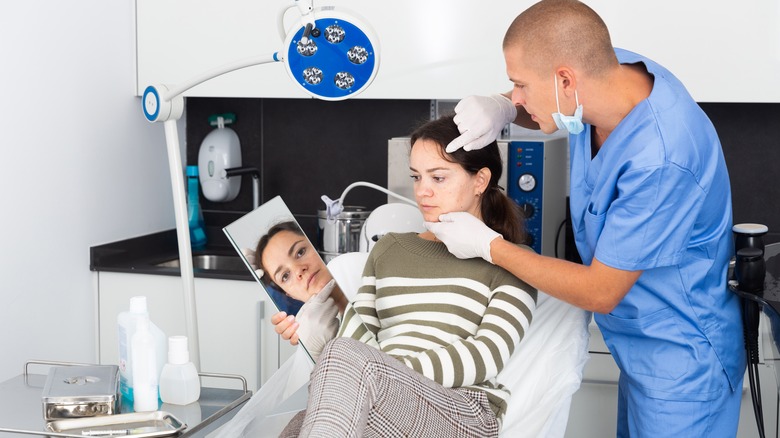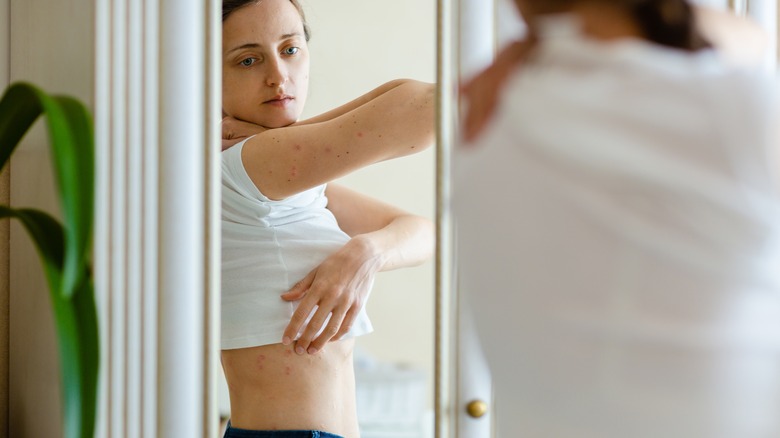Is It Safe To Take Accutane When You Have Eczema?
Eczema can cause severe stress for those affected. Not only is the itching and dry skin very uncomfortable, but it can make you feel self-conscious when appearing in clearly visible areas. You might consider Accutane (isotretinoin) as a treatment option if you have acne alongside your eczema, as per the Camas Swale Medical Clinic. This medication, also known as a retinoid, reduces the production of oil (sebum) in the skin and shrinks the oil glands. However, due to the potential side effects of Accutane, it is typically used only as a last resort for severe acne and is often prescribed for people that have not responded to other treatments, such as antibiotics, says Drugs.com. For this reason, Accutane is best taken under the supervision of a doctor or dermatologist who can monitor any potential side effects and adjust the dosage or treatment plan as needed.
Since it is not typically used to treat eczema, you may wonder if it is safe to take Accutane. Let's dive into the finer details.
Is Accutane safe for people with eczema?
When concerning Accutane's safety as an eczema treatment, Healthline says it's safer for people who have their eczema well-managed, rather than those who experience frequent flare-ups or severe eczema. While there is no definitive evidence that Accutane is unsafe for people with eczema, there are some potential risks. For starters, the medication can dry the skin further and cause other side effects, such as dry eyes, itchy skin, and dry mouth. This dryness and skin irritation may exacerbate eczema symptoms, considering that Accutane reduces the sebum produced in the skin's oil glands. When sebum production is reduced, the skin can become dry, flaky, and irritated. After all, sebum helps to protect and moisturize the skin, explains Medical News Today. Sebum also shifts antioxidants that help protect the skin from free radicals and harmful pathogens like bacteria.
Therefore, while dry skin is a common side effect of Accutane, it is usually temporary and will improve once the medication is stopped, according to Norris Dermatology and Laser Northwest. With that said, it's best to moisturize the skin to combat dryness.
Speak to a dermatologist
Treatment for eczema and acne can be challenging because some medications used to treat acne may exacerbate eczema symptoms. Therefore, it always helps to discuss the risks and benefits with your dermatologist to determine what medication is safe. They can also offer some guidance on managing any potential side effects. After all, the best treatment might depend on the severity and type of eczema, acne, or any other medical conditions you have.
Your dermatologist might recommend options like salicylic acid, commonly used to treat both conditions, says Healthline. Salicylic acid penetrates the pores, softening the keratin protein in the skin, loosening dry skin, and dissolving the buildup of oil and dead skin cells that can lead to acne breakouts. On the other hand, an expert could suggest combining medications and lifestyle changes. This may include eating a healthy diet that includes omega-3 fatty acids. After all, a 2012 study published in the journal Lipids in Health and Disease notes that fish oil supplementation might be beneficial for relieving acne.



